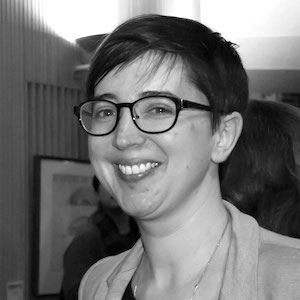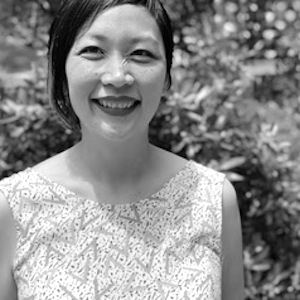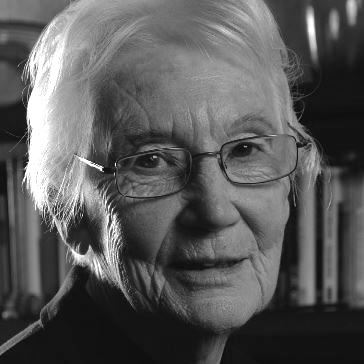
Annette Baier Prize
Sponsored by Taylor and Francis
Awarded for an outstanding philosophical paper or book chapter published by an Australasian woman during the previous calendar year. Awarded during the Presidential Address at the annual conference each July.
SUBMISSIONS NOW OPEN
More information, judging criteria & how to enter. Nominate to be a Judge here.
2025 Winner

Stephanie Collins
Monash University
"States’ Culpability through Time"
Philosophical Studies 181: 1345-1368.
2025 Commendation

Kristie Miller
University of Sydney
“Personal Identity Noncognitivism”
Analytic Philosophy. 10.1111/phib.12344
2025 Shortlist

Madeleine Shield
University of Queensland
“Shame and the Question of Self-Respect”
Philosophy and Social Criticism 50 (5): 721–741.

Stephanie Collins
Monash University
"States’ Culpability through Time"
Philosophical Studies 181: 1345-1368.

Emily Hulme
University of Sydney
“Plato’s Argument for the Inclusion of Women in the Guardian Class: Prospects and Problems”
The Routledge Handbook on Women and Ancient Greek Philosophy, eds. S. Brill and C. McKeen, 165–180.

Felicity Joseph
University of New England
“The Degendering of Virtue: Beauvoir and Wollstonecraft on Virtue and Equality”
Feminist Philosophy Quarterly 10 (3)
https://ojs.lib.uwo.ca/index.php/fpq/article/view/16798

Kristie Miller
University of Sydney
“Personal Identity Noncognitivism”
Analytic Philosophy. 10.1111/phib.12344

Sandra Leonie Field
Monash University
"Marx, Spinoza, and 'True Democracy'"
Spinoza in Germany: Political and Religious Thought across the Long Nineteenth Century,
Oxford University Press. pp. 212-237. 2024
2024 Winner

Michelle Liu
Monash University
'X-Phi and the challenge from ad hoc concepts'
This excellent essay draws on (and contributes to) work in the philosophy of language about ad hoc concepts in order, first, to probe the use of “what-it’s-like” concepts in experimental philosophy, and, second, to critique resulting claims made by experimental philosophers about lay versus expert conceptions of consciousness. The essay is noteworthy for its clarity, rigour, and innovation. The essay articulates a highly technical and complex discussion in ways that a general philosophical reader can understand. It deftly brings diverse modes of philosophical inquiry into a single, focused argument that successfully challenges methodologies of current experimental philosophy.
Synthese, 201, 166.
link.springer.com/article/10.1007/s11229-023-04149-8
michelleyuanboliu.wixsite.com/mybl
research.monash.edu/en/persons/michelle-liu
2024 Commendation

Bronwyn Finnigan
Australian National University
‘Fear is Anticipatory: A Buddhist Analysis’
Journal of Consciousness Studies, 30 (7-8): 112-138
https://doi.org/10.53765/20512201.30.7.112
2024 Shortlist

Belinda Eslick
University of Queensland
'Sexuation as a Frame for Human Becoming: Reading a “Plastic” Essence in Irigaray’s Philosophy'
In M. C. Rawlinson & J. Sares (Eds.), What Is Sexual Difference?: Thinking with Irigaray (pp. 124–142). Columbia University Press.
https://www.jstor.org/stable/10.7312/rawl20272.11

Bronwyn Finnigan
Australian National University
‘Fear is Anticipatory: A Buddhist Analysis’
Journal of Consciousness Studies, 30 (7-8): 112-138
https://doi.org/10.53765/20512201.30.7.112

Justine Kingsbury
University of Waikato
'New Challenges to the Selected Effects Account of Biological Function'
Synthese, 202, 177.

Michelle Liu
Monash University
'X-Phi and the challenge from ad hoc concepts'
Synthese, 201, 166.
https://link.springer.com/article/10.1007/s11229-023-04149-8

Kristie Miller
University of Sydney
'Against Passage Illusionism'
Ergo an Open Access Journal of Philosophy, 9: 45.
https://doi.org/10.3998/ergo.2914

Dalia Nassar
University of Sydney
'The Feeling of Freedom: Schelling on the Role of Freedom in Grasping Nature'
In Joe Saunders (Eds.), Freedom after Kant: From German Idealism to Ethics and the Self. New York: Bloomsbury.
https://www.bloomsbury.com/us/freedom-after-kant-9781350187757/
Winner 2023

Anik Waldow
University of Sydney
‘What is Humean Autonomy?’
In Daniel O'Brien (Eds.), Hume on the Self and Personal Identity, (pp. 177-200). Cham: Palgrave Macmillan/Springer, 2022.
link.springer.com/chapter/10.1007/978-3-031-04275-1_8
The fundamental idea of this paper is that David Hume thinks humans are essentially social, in their identities and agency, so a Humean account of autonomy includes consideration of our links with each other. Autonomy does not necessitate reasoning purely as an individual. The author undertakes a close reading of Hume’s account of moral judgment and virtue in dialogue with recent work on relational autonomy in order to argue that there are resources in Hume’s work to explain how selves can resist domination even though they are sympathetically connected with others. The argument is that Hume’s account of the self as having autonomy can be spelt out in terms of the performative nature of ‘autonomous self-manifestation’, meaning that explicit self-analysis is not needed for autonomy or for a critical judgement of unjust ways of being treated. Critical reflection can be habitual or reflective, and a person can critically evaluate and reject dominant perspectives through considering agreeable and useful virtues from the perspective of the self. The paper opens up questions concerning how oppression can be resisted even when we are deeply concerned with the views of others. It is an original, persuasive and closely argued paper, and it is elegantly and clearly written.
2023 Shortlist

Stephanie Collins
Monash University
‘I, Volkswagen’
The Philosophical Quarterly, 72(2): 283–304, 2022
academic.oup.com/pq/article-abstract/72/2/283/6307942
'Abilities and Obligations: Lessons from Non-Agentive Groups', Erkenntnis, 2022
doi.org/10.1007/s10670-021-00507-5

Kate Phelan
Royal Melbourne Institute of Technology
‘Feminism as Epic Theory’
British Journal of Political Science, 52(3): 1226-1239, 2022
doi.org/10.1017/S0007123421000090

Krushil Watene
University of Auckland
‘Indigenous Philosophy and Intergenerational Justice’
Reimagining the Human-Environment Relationship. New York: United Nations University, 2022
collections.unu.edu/eserv/UNU:8829/UNUUNEP_Watene_RHER.pdf
2022 Winner

Melissa Merritt
University of New South Wales
'Kant and Stoic Affections'
Canadian Journal of Philosophy, 51(5), 329–350, 2021
"This beautifully written article on "Kant and Stoic Affections" leads us through key nuances of Kant's expositions of reason, passions, affects, and faculties of the mind to show us what readers have too-often missed: an account of the way we use 'the resources of reason' to turn the immediate assailments of affect into habitual passions. We find Kant returning to the Stoics' psychological monism as he writes his mature work on morals and anthropology. Applied to his claims about the passions and affects, what comes through clearly is a vision of the very point where affect and reason can meet -- and it is only when affects turn into unthinking passions that habitually flare, and do so even in the face of reason, that we have a problem."
2022 Shortlist

Rachael Brown
Australian National University
'Is Cultural Evolution Always Fast?' 'Challenging the idea that cognitive gadgets would be capable of rapid and adaptive evolution'
Synthese, 199, 8965–8989, 2021
doi.org/10.1007/s11229-021-03190-9

Heather Dyke
University of Otago
Weak Neo-Whorfianism and the Philosophy of Time
Mind & Language, 1–14, 2021
2021 Winner

Jessica Whyte
University of New South Wales
‘Calculation and Conflict’
South Atlantic Quarterly, 119(1): 31-51, 2020
read.dukeupress.edu/south-atlantic-quarterly
“Calculation and Conflict” makes a ground-breaking contribution to the philosophy of political economy with its illuminating analysis of the calculation debate of the early twentieth century. The paper recounts the fateful moments when Otto Neurath’s arguments for planned economies oriented towards wellbeing and guided by popular deliberation lost the debate to Ludwig von Mises’s case for associating market freedoms with human freedoms, the progress of civilization, and the prospect of world peace. The paper’s incisive look at the original arguments from the period is of enormous relevance today for the understanding it provides of the reasoning behind neo-liberalism and how its rise involved the defeat or marginalization of some very persuasive alternatives.
2021 Shortlist

Melissa Merritt
University of New South Wales
‘Nature, Corruption, and Freedom: Stoic ethics in Kant's Religion’
European Journal of Philosophy, 29: 3-24, 2020

Glenda Lucila Satne
University of Wollongong
‘Practical Knowledge and Shared Agency: Pluralizing the Anscombean view’.
Inquiry, 2020
2020 Winner

Talia Morag
University of Wollongong
'Comparison or Seeing-As? The Holocaust and Factory Farming'
Morality in a Realistic Spirit : Essays for Cora Diamond, Andrew Gleeson and Craig Taylor (eds.). London: Routledge, 2019
routledge.com/Morality-in-a-Realistic-Spirit-Essays-for-Cora-Diamond
If we attend to the singularity of seeing-as experiences, noticing how they make us feel and how they can isolate us, we may be able to talk about them in a way that invites others to share them or at least acknowledge our experience of them. This seeing-as is different than making a comparison; the latter uses concepts to make an argument, while the former is imagistic and expresses a singular experience. In this chapter, Talia Morag analyses J.M. Coetzee’s fictional character Elizabeth Costello’s profoundly isolating experience of seeing our treatment of non-human animals as connected to imagery of the Holocaust. The essay is a beautiful example of the insight philosophers can provide into crucial if painful aspects of the human experience when they extend their methods beyond conventional conceptual analysis.
2020 Commendations

Helen Ngo
Deakin University
‘Get Over It’? Racialised Temporalities and Bodily Orientations in Time'
Journal of Intercultural Studies, 40(2), 239-253, 2019

Anne Schwenkenbecher
Murdoch University
'Collective Moral Obligations: "We-Reasoning" and the Perspective of the Deliberating Agent'
The Monist, 102(2): 151-171, 2019
2020 Shortlist

Laura Davy
Australian National University
'Between an Ethic of Care and an Ethic of Autonomy: Negotiating Relational Autonomy, Disability and Dependency'
Angelaki - Journal of the Theoretical Humanities, 24,101-114, 2019

Holly Lawford-Smith
University of Melbourne
‘Democratic Authority to Geoengineer’
Critical Review of Social and Political Philosophy, 2019

Hannah Tierney
Cornell University / University of Sydney
'Quality of Reasons and Degrees of Moral Responsibility'
Australasian Journal of Philosophy, 97(4), 661-672, 2019
2019 Winner

Louise Richardson-Self
University of Tasmania
'Offending White Men: Racial Vilification, Misrecognition, and Epistemic Injustice'
Feminist Philosophy Quarterly, 4(4), 2019
sites.google.com/site/louiserichardsonself
In "Offending White Men" the author very skillfully and convincingly draws on recent scholarship on epistemic injustice to address an important issue in contemporary Australian politics and society, namely recent challenges to the Racial Discrimination Act by white complainants. The paper is an excellent example of engaged philosophy - philosophy that takes as its starting point a specific social problem and uses the resources of philosophical theory to analyse and respond to that problem.
2019 Commendation

Holly Lawford-Smith
University of Melbourne
'What's Wrong with Collective Punishment?'
Proceedings of the Aristotelian Society, 3/CXVIII
2019 Shortlist
\
Bronwyn Finnigan
Australian National University
'Is Consciousness Reflexively Self-Aware? A Buddhist Analysis'
Ratio, 31: 389-401, 2018

Kristie Miller
The University of Sydney
'The New Growing Block Theory vs Presentism'
Inquiry, 61(3): 223-251, 2018

Catherine Mills
Monash University
'Seeing, Feeling, Doing: Mandatory Ultrasound Laws, Empathy and Abortion'.
Journal of Practical Ethics. 6(2): 1-31, 2018
monash.edu/en/persons/catherine-mills
2018 Winner

Monash University
'Predictive brains, dreaming selves, sleeping bodies: how the analysis of dream movement can inform a theory of self-and world-simulation in dreams'
Synthese, 195.6: 2577-2625, 2018
This paper is exceptionally clear and systematic. Building on an impressive body of prior work, Windt does a great job of walking the inexperienced reader through the steps of both established scholarly debates in analytic philosophy of mind, and a wealth of empirical data on dreaming. The manifold and subtle ways in which the paper manages to explore the testability of various well-known philosophical positions as empirical hypotheses greatly impressed the judges. The paper is also notable for arguing powerfully against a view of the relationship between mind, brain and body that is currently widely held by philosophers (‘cranial envatment’), and advancing an interesting positive thesis of its own: that the way we imagine our body to be shapes our phenomenal states, and thus while we’re dreaming our actual bodily sensations might give rise to dream images that unfold through their own logic and then inform further dream ‘perceptions’ in a rich feedback loop. One judge also noted potentially rich connections between this discussion and work by Lacan and Merleau-Ponty.
2018 Commendations

Talia Morag
Deakin University
'The Tracking Dogma in the Philosophy of Emotion'
Argumenta 2, 2, 343-363, 2017

Helen Ngo
Deakin University
Australian Feminist Law Journal, 43:1, 107-123, DOI: 10.1080/13200968.2017.1321090, 2017
2018 Annette Baier Prize - Shortlist

Luara Ferracioli
University of Sydney
'Citizenship for Children: By soil, By Blood, or By Paternalism?' Philos Stud, 2017
doi.org/10.1007/s11098-017-0985-3

Bronwyn Finnigan
Australian National University
'The Nature of a Buddhist Path'
A Mirror is for Reflection: Understanding Buddhist Ethics J.H.Davis (ed.) Oxford University Press, 33-52, 2017
2017 Winner

Miriam Bankovsky
La Trobe University
'Excusing Economic Envy: On Injustice and Impotence',
Journal of Applied Philosophy, 35(2), 2016
https://doi.org/10.1111/japp.12194
Bankovsky’s paper provides a highly original analysis of an idea that has been with us since the Ancient Greeks – that envy is irrational, and as such, does not provide justification for economic redistribution. Bankovsky challenges this orthodoxy by recovering the overlooked concept from John Rawls of ‘excusable envy’, which she argues shows that envy can be rational, and does provide grounds for economic redistribution. Bankovsky’s analysis is both detailed and ambitious; it has the potential to re-orient philosophical analysis of economic envy, from the language of individual shame to that of collective social justice. In this, she links conceptual argumentation with contemporary political concerns, in an article that the committee judged to be of a high standard of scholarship, clarity and overall merit. Her article is a commendable achievement.
2017 Short List

Tracy Llanera
Macquarie University
'Rethinking nihilism: Rorty vs Taylor, Dreyfus and Kelly',
Philosophy and Social Criticism, 42.9 (2016), 937-950., 2016

Talia Morag
Deakin University
'Emotions as judgments or as modes of “seeing-as”: The explanatory challenges toward a causal account for emotional episodes', Emotion, Imagination, and the Limits of Reason, London: Routledge, 21-57, 2016

Dalia Nassar
University of Sydney
'Analogical reflection as a source for the science of life: Kant and the possibility of the biological sciences', Studies in History and Philosophy of Science 58, 57-66, 2016

Anik Waldow
University of Sydney
'Natural history and the formation of the human being: Kant on active forces', Studies in History and Philosophy of Science, 56, 67-76, 2016
2016 Winner

Monima Chadha
Monash University
'Time-Series of Ephemeral Impressions: The Abhidharma-Buddhist View of Conscious Experience', Phenomenology and Cognitive Sciences, 14(3): 543–560, 2015
This paper defends the Buddhist Abhidharma theory of experience from phenomenological and metaphysical challenges due to the doctrine of momentariness, the view that ‘seemingly rich conscious experiences are made fully available in a moment’. (544) It is a very thorough paper, responding to recent criticisms by Dan Zahavi and others, and elegantly weaving together history of philosophy in the Buddhist tradition, contemporary analytic philosophy, empirical neuroscience and the phenomenology of Husserl to craft an intricate united view. The piece is incredibly rich, and correspondingly complex, due to the worlds of knowledge navigated. It carefully treads the line between textual fidelity to particular traditions and conceptual engagement across traditions.
2016 Short List

Joanne Faulkner
University of New South Wales
‘Our Own Hurricane Katrina: Aboriginal Disadvantage and Australian National Identity’, National Identities, 17(2),117-135, 2015

Bronwyn Finnigan
Australian National University
‘Phronesis in Aristotle: Reconciling Deliberation with Spontaneity’, Philosophy and Phenomenological Research, Vol. XCI No. 3, 674-697, 2015

Dalia Nassar
University of Sydney
‘Analogy, Natural History and the Philosophy of Nature', Journal of the Philosophy of History, 9, 240-257, 2015

Anik Waldow
University of Sydney
‘Activating the Mind: Descartes’ Dreams and the Awakening of the Human Animal Machine’, Philosophy and Phenomenological Research, 2015


Annette Claire Baier 1929 - 2012
Annette Baier was a New Zealand philosopher and Hume scholar, focused in particular on Hume's moral psychology.She was well known for her contributions to feminist philosophy and to the philosophy of mind.
Annette Baier Prize Judging Criteria
The sole criterion for the Prize is philosophical merit.
The judging panel will consider and score the entries on:
1.Overall impression of merit , 2. Originality, 3. Scholarship, 4. Clarity of expression
Eligibility
The prize is open to female professional philosophers who are actively engaged in an Australasian higher education and/or research institution. ‘Professional philosopher’ includes Research Higher Degree students. Entries must appear in print (or in final form if the publication is online only) in 2025 to be eligible. If the piece appears first online and then in hard copy in different years, it may be submitted in either of those years, but may only be submitted once. The prize is open to published papers or book chapters (i.e. chapters in edited anthologies, (not monographs)) in any area of philosophy.
In addition
- Only single-authored entries are eligible
- If the author has Australasian and non-Australasian affiliations, the paper needs to be published under at least one Australasian affiliation (Australia, New Zealand, Singapore)
Entries must be submitted as a PDF for blind review with all names, contact details, publication name and other identifying features redacted.
Submissions deadline: Friday 20th February 2026 8.00pm AEDT
Submit your entry HERE
Full details on Policy & Procedure can be found HERE (Requires Member Login)
This prize requires the collection of personal information. The way this personal information is used and distributed is detailed in the AAP Privacy Policy which can be found HERE. The AAP Privacy Policy forms part of the terms and conditions of this prize. By submitting a nomination, an applicant agrees to the usage of personal information as defined in the AAP Privacy Policy. Those nominating a third party for the prize should pay special attention to their obligation in notifying the third party of the usage and disclosure of their information as defined in the AAP Privacy Policy.
![]()
Nominate to be a Judge for the Annette Baier Prize here.
All enquiries to: Women@aap.org.au
